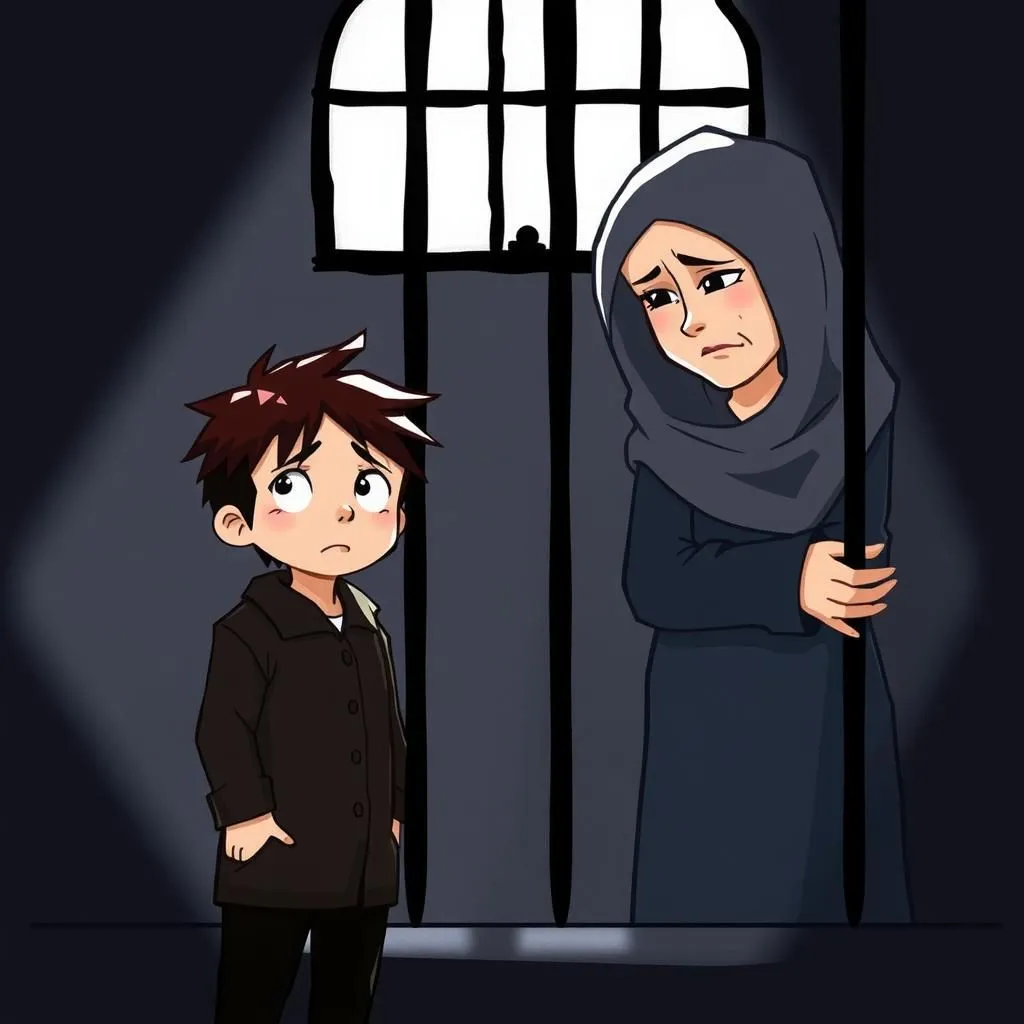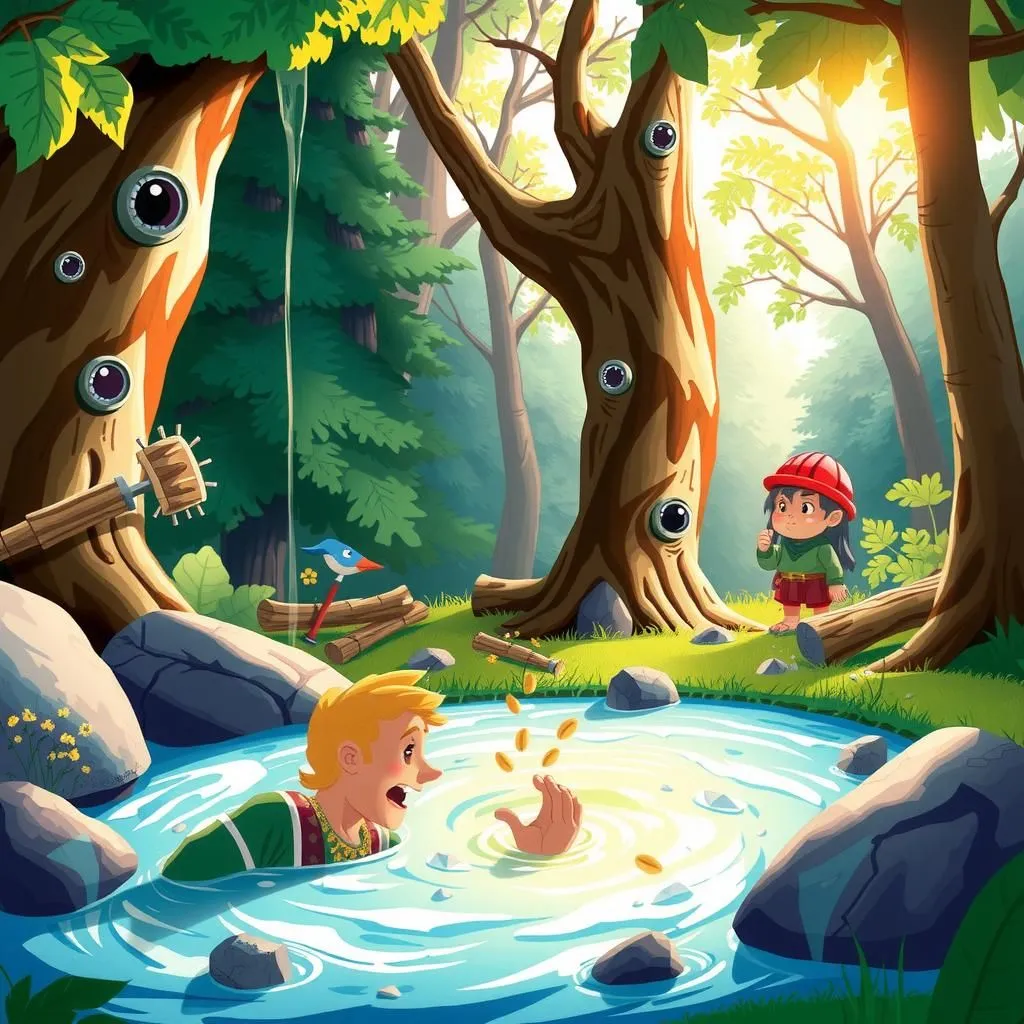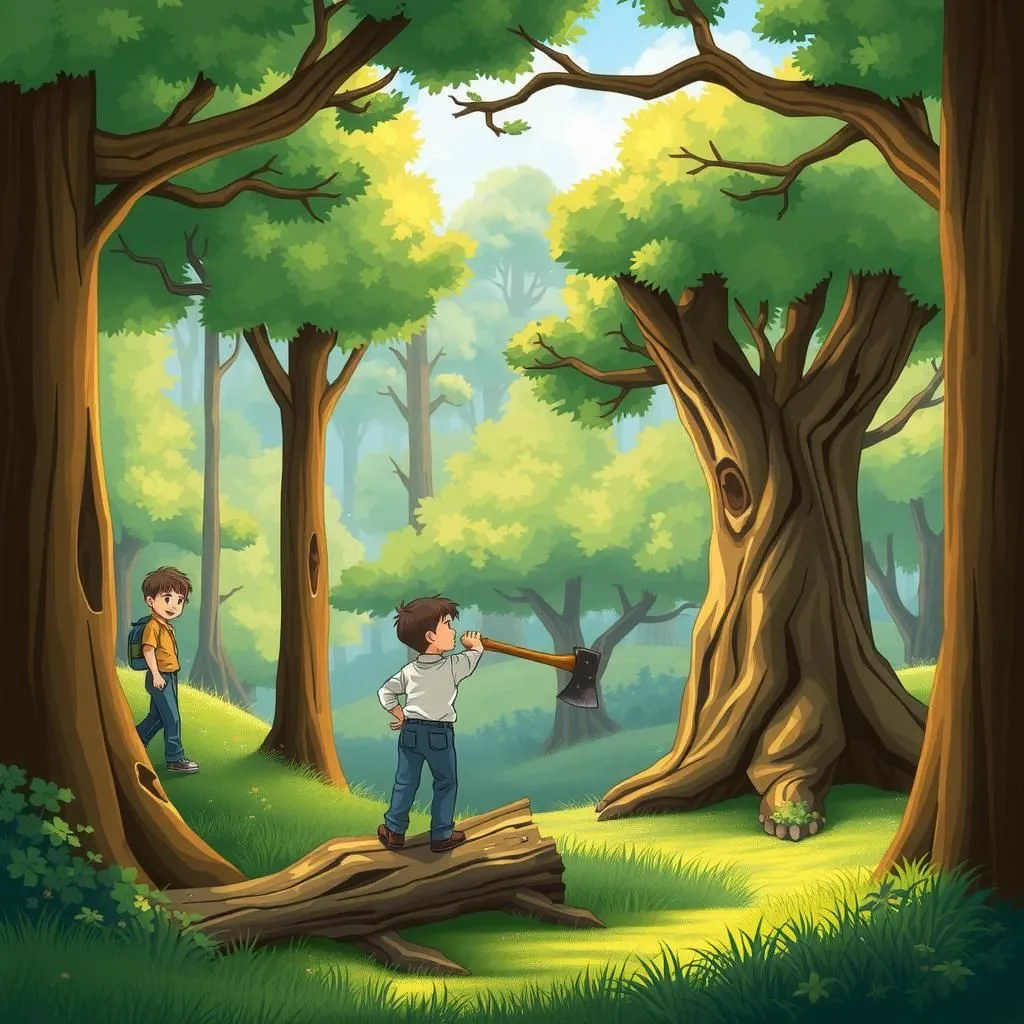
The Thief and His Mother
In this entertaining moral story, a boy, encouraged by his mother, begins a life of theft that escalates as he matures. Ultimately caught and facing execution, he bites off his mother's ear in a moment of anger, lamenting that had she disciplined him for his early misdeeds, he might have avoided such a disgraceful fate. This tale serves as a stark reminder of the importance of instilling simple lessons from stories early on to guide children towards better choices.


